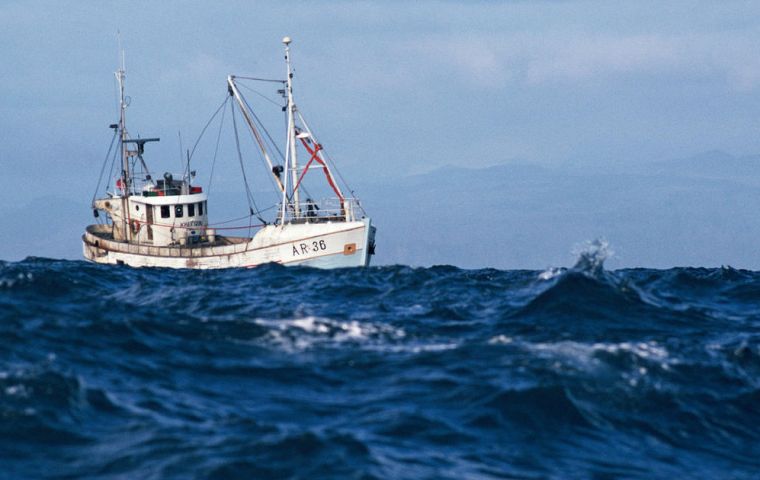MercoPress. South Atlantic News Agency
UN fails to approve the High Seas Treaty to protect oceans and marine life
 The suspension decision followed two weeks of talks that environmentalists had hoped would close a gap in international marine protection measures
The suspension decision followed two weeks of talks that environmentalists had hoped would close a gap in international marine protection measures Negotiations on a High Seas Treaty to protect marine life, at the United Nations in New York were suspended on Saturday after diplomats failed to reach an agreement at the end of the fifth round of talks.
The suspension decision followed two weeks of talks that environmentalists had hoped would close a gap in international marine protection measures. A proposed treaty would set rules for protecting biodiversity in two-thirds of the world's ocean areas that are outside of national jurisdictions.
Less than 1% of the high seas are protected without a new treaty, and “pockets of marine protection are not enough” for threatened species, said Maxine Burkett, the United States deputy assistant secretary of state who was involved in negotiations.
The global goal is to set aside 30% of ocean area as some kind of marine sanctuary. Ocean health is also key to combating climate change because more than 90% of the excess heat from climate change is absorbed by the seas. Marine heat waves are getting longer and more frequent.
“The ocean cannot afford further delay,” Burkett said earlier in the week, when the negotiations looked promising. In the Caribbean, “our livelihoods are directly dependent on the health of the ocean,” said Janine Felson, Belize's ambassador to the United Nations.
Talks centered on how to share benefits from marine life, establish protected areas, prevent harm from human activity on the high seas and to help poor countries gain the skills and means for ocean exploration.
Campaigners expressed disappointment at the failure to reach a deal but said the talks produced some progress. Laura Meller, who leads Greenpeace’s ocean protection campaign, accused rich countries such as the United States of being too slow to compromise.
“Russia has also been a key blocker in negotiations, refusing to engage in the treaty process itself, or attempting to compromise with the European Union and many other states on a wide range of issues,” Meller said.
The talks will resume next year unless a special emergency session is called before the end of 2022.
U.S. Assistant Secretary of State Monica Medina also voiced disappointment but expressed hope that the work done so far would carry forward. She said the United States remained committed to the goal of protecting at least 30% of the world’s oceans by 2030.
The talks centeres of four issues, Establishing marine protected areas; Improving environmental impact assessments; Providing finance and capacity building to developing countries; Sharing of marine genetic resources - biological material from plants and animals in the ocean that can have benefits for society, such as pharmaceuticals, industrial processes and food
More than 70 countries - including the UK - prior to the meeting had already agreed to put 30% of the world's oceans into protected areas. But countries failed to reach agreement on key issues of fishing rights and also funding and support for developing countries.
Research published earlier this year, and funded by the National Oceanic and Atmospheric Administration, suggests that between 10% and 15% of marine species are already at risk of extinction. Sharks and rays are among the species set to lose out from the failure to pass the treaty.
Liz Karan Project Director for the Pews High Seas Campaign said the previous treaty from 1982 included promises for support that were not fulfilled, and this has left some developing nations frustrated.




Top Comments
Disclaimer & comment rulesCommenting for this story is now closed.
If you have a Facebook account, become a fan and comment on our Facebook Page!